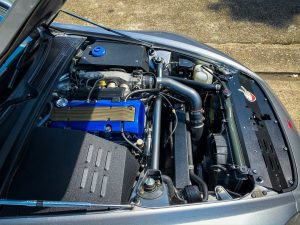Heat-Resistant Brake Systems for Heavy-Duty Vehicles
When it comes to heavy-duty vehicles, every component needs to be built to withstand high levels of stress and heat. This is especially true for the brake system, which plays a crucial role in ensuring the safety and efficiency of these vehicles. Heat-resistant brake systems are a must for heavy-duty vehicles, and in this article, we will explore what they are, how they work, and why they are so important.
What are Heat-Resistant Brake Systems?
Heat-resistant brake systems are specially designed to withstand extreme temperatures and heavy loads. They use advanced materials and technology to dissipate heat and maintain optimal braking performance even in the harshest conditions.
Heavy-duty vehicles, such as trucks, buses, and trailers, operate at higher speeds and carry heavier loads than regular passenger vehicles. This results in increased levels of heat and friction on the brake components, which can cause them to overheat and fail if they are not designed to handle it. Heat-resistant brake systems are specifically engineered to address this issue and ensure safe and reliable braking for heavy-duty vehicles.
How do Heat-Resistant Brake Systems Work?
The key to the effectiveness of heat-resistant brake systems lies in their materials and design. These systems use a combination of advanced materials, including ceramic, carbon, and Kevlar, which have high thermal resistance and can withstand extreme temperatures without degrading.
Additionally, heat-resistant brake systems have significantly larger and more efficient brake rotors and pads compared to regular brake systems. These larger components allow for better heat dissipation and reduce the risk of overheating. They also have enhanced cooling features, such as ventilation ducts and finned rotors, which help to dissipate heat more quickly and keep the brake system within the ideal operating temperature range.
The Importance of Heat-Resistant Brake Systems for Heavy-Duty Vehicles
The importance of heat-resistant brake systems for heavy-duty vehicles cannot be overstated. These vehicles operate in demanding environments and often carry precious cargo, making it essential for their braking systems to perform flawlessly at all times. A failure in the brake system can have catastrophic consequences, not just for the vehicle and its occupants but also for other drivers on the road.
Heat-resistant brake systems not only ensure safety but also improve the overall efficiency and performance of heavy-duty vehicles. These systems can handle higher levels of heat and stress, which results in longer-lasting brake components and reduced maintenance costs. They also provide better and more consistent braking performance, contributing to the overall reliability and productivity of heavy-duty vehicles.
The Future of Heat-Resistant Brake Systems
As heavy-duty vehicles continue to evolve and become more advanced, the demand for durable and high-performance brake systems will only increase. To meet this demand, research and development in the field of heat-resistant brakes are ongoing, with a focus on developing even more efficient and effective braking solutions for heavy-duty vehicles.
New technologies, such as regenerative braking and brake-by-wire systems, are also being incorporated into heat-resistant brake systems. These advancements aim to further improve the safety, efficiency, and performance of heavy-duty vehicle braking systems in the future.
In Conclusion
Heat-resistant brake systems are a crucial component for heavy-duty vehicles, providing safety, reliability, and efficiency. These systems use advanced materials and design to withstand extreme temperatures and heavy loads, ensuring optimal braking performance in all conditions. With ongoing research and development, the future of heat-resistant brake systems for heavy-duty vehicles is looking brighter than ever, promising even more advancements and innovations in this essential area of vehicle technology.










